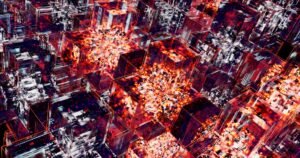Zuckerberg's Palo Alto Real Estate: Impact on Crescent Park
- THE MAG POST

- Aug 11, 2025
- 9 min read

Mark Zuckerberg's Palo Alto real estate investments have significantly altered the landscape of Crescent Park. Once a serene neighborhood, it now faces challenges of construction and privacy. The billionaire's acquisitions, totaling over $110 million, have sparked mixed reactions from residents. While some appreciate the enhanced security, others lament the loss of community charm. Understanding these impacts is crucial as Crescent Park navigates its future, balancing progress with preserving its unique character amidst Zuckerberg's Palo Alto real estate footprint.
Crescent Park, an upscale enclave in Palo Alto, has long been the address of choice for legal eagles, corporate leaders, and esteemed Stanford faculty. For many residents, life in this serene neighborhood was the epitome of Californian bliss, until Mark Zuckerberg, the tech magnate, arrived on the scene. Zuckerberg's Palo Alto real estate investments, totaling over $110 million across more than 11 properties, have ushered in an era of extensive construction and heightened surveillance, altering the neighborhood's character.
The Impact of Zuckerberg's Palo Alto Real Estate on Crescent Park's Tranquility
For decades, Crescent Park stood as a beacon of the California dream, a place where professionals and academics thrived in a setting of idyllic charm. The streets, lined with majestic oak, redwood, and magnolia trees, framed an assortment of Craftsman homes and cozy bungalows. These homes were not just residences but the heart of a close-knit community, where families forged lasting friendships. The annual block parties were legendary, filled with laughter and camaraderie. The daily rhythm of life was peaceful, marked by the joyful sounds of children playing and cycling through the neighborhood, a stark contrast to the changes brought about by Zuckerberg's Palo Alto real estate ventures.
The arrival of Mark Zuckerberg and his subsequent investment in Zuckerberg's Palo Alto real estate has disrupted this tranquility. The large-scale construction projects associated with combining multiple properties into a single compound have introduced noise, traffic, and disruption to the once-peaceful streets. The increased security measures, while intended to protect Zuckerberg and his family, have created a sense of unease among some residents. This shift from a relaxed, community-oriented atmosphere to one of heightened security and construction is a significant concern for many who cherish the original character of Crescent Park, now overshadowed by Zuckerberg's Palo Alto real estate footprint.
Moreover, the transformation of residential properties into a large, interconnected compound raises questions about the future of Crescent Park's community fabric. The demolition of existing homes and the construction of new structures, including basements and pools, have altered the physical landscape of the neighborhood. While property owners have the right to renovate and improve their homes, the scale and scope of Zuckerberg's Palo Alto real estate projects have sparked debate about the impact on neighborhood aesthetics and the overall sense of community. The long-term effects of these changes remain to be seen, but the initial reactions from residents reflect a mix of concern and resignation.
The story of Zuckerberg's Palo Alto real estate investments in Crescent Park is a microcosm of the broader tensions that arise when immense wealth intersects with established communities. While some may view Zuckerberg's presence as a sign of prestige and economic vitality, others lament the loss of the neighborhood's original charm and character. The challenge lies in finding a balance between individual property rights and the collective interests of the community, ensuring that new developments enhance rather than detract from the qualities that make Crescent Park a desirable place to live. The ongoing saga of Zuckerberg's Palo Alto real estate serves as a cautionary tale about the potential disruptions that can accompany rapid change.
In light of these developments, it's essential for communities to engage in open and constructive dialogue about the future of their neighborhoods. Balancing the desires of individual property owners with the collective well-being of residents requires careful consideration and a commitment to preserving the unique character of each community. The case of Zuckerberg's Palo Alto real estate highlights the importance of proactive planning and community engagement to mitigate the potential negative impacts of large-scale developments. By fostering a collaborative approach, neighborhoods can navigate change while maintaining the qualities that make them special, ensuring a harmonious blend of progress and preservation.
Navigating Privacy and Construction: Zuckerberg's Palo Alto Real Estate Impact
The transformation of Crescent Park due to Zuckerberg's Palo Alto real estate acquisitions has brought the issues of privacy and construction into sharp focus. Residents have expressed concerns about the increased surveillance measures implemented around Zuckerberg's properties, including security cameras and private security personnel. While these measures are intended to protect Zuckerberg and his family, they have also created a sense of being watched among some neighbors. The balance between personal security and community privacy is a delicate one, and the situation in Crescent Park underscores the challenges of navigating these competing interests in a residential setting affected by Zuckerberg's Palo Alto real estate.
In addition to privacy concerns, the extensive construction projects associated with Zuckerberg's Palo Alto real estate have caused significant disruption to the neighborhood. The demolition of existing homes, excavation for basements and pools, and the constant presence of heavy machinery have generated noise, dust, and traffic congestion. These disruptions have not only inconvenienced residents but have also raised concerns about the potential long-term impacts on property values and the overall quality of life in Crescent Park. Managing construction-related impacts is crucial for minimizing the negative effects on the community and ensuring that residents can continue to enjoy their homes and neighborhood.
To address these challenges, it is essential for local authorities to enforce strict construction regulations and work closely with property owners to mitigate disruptions. This includes setting limits on construction hours, requiring dust control measures, and implementing traffic management plans to minimize congestion. Furthermore, open communication between property owners and residents is vital for addressing concerns and finding solutions that work for everyone. By fostering a collaborative approach, communities can navigate construction projects while minimizing the negative impacts on residents and preserving the overall quality of life in the neighborhood, even amidst Zuckerberg's Palo Alto real estate endeavors.
Moreover, the issue of privacy requires careful consideration and a commitment to respecting the rights of all residents. While property owners have the right to implement security measures to protect their homes and families, these measures should not infringe upon the privacy or sense of security of their neighbors. Clear guidelines and regulations regarding surveillance and security practices can help to ensure that privacy rights are protected and that residents feel safe and comfortable in their own homes and neighborhood. The ongoing situation in Crescent Park highlights the importance of striking a balance between personal security and community privacy in an increasingly interconnected world, particularly in areas with significant Zuckerberg's Palo Alto real estate presence.
Ultimately, the impact of Zuckerberg's Palo Alto real estate on Crescent Park underscores the need for proactive planning and community engagement to address the challenges of privacy and construction. By working together, residents, property owners, and local authorities can find solutions that minimize disruptions, protect privacy rights, and preserve the unique character of the neighborhood. The lessons learned from this experience can serve as a valuable guide for other communities facing similar challenges, ensuring that growth and development enhance rather than detract from the qualities that make each neighborhood a desirable place to live.
Community Reactions and Future Implications of Zuckerberg's Palo Alto Real Estate
The reactions of Crescent Park residents to Zuckerberg's Palo Alto real estate investments have been varied, ranging from resignation to outright opposition. Some residents express understanding of Zuckerberg's desire for privacy and security, while others lament the loss of the neighborhood's original character and sense of community. The increased surveillance and construction disruptions have created a sense of unease among some, leading to concerns about the future of Crescent Park as a close-knit residential area. Understanding these community reactions is crucial for assessing the long-term implications of Zuckerberg's presence and for finding ways to mitigate any negative impacts.
One of the key concerns among residents is the potential for further disruptions and changes to the neighborhood. The consolidation of multiple properties into a single compound raises questions about the future of residential zoning and the overall character of Crescent Park. Some fear that Zuckerberg's actions could set a precedent for other wealthy individuals to acquire and transform multiple properties, further eroding the neighborhood's original charm and community fabric. Addressing these concerns requires a proactive approach from local authorities, including clear zoning regulations and community engagement initiatives to ensure that future developments align with the interests of residents.
Furthermore, the impact of Zuckerberg's Palo Alto real estate on property values and the local housing market is a significant consideration. While some believe that Zuckerberg's presence could increase property values in the long run, others worry that the disruptions and changes to the neighborhood could make it less desirable for families and long-term residents. Monitoring property values and housing trends is essential for understanding the economic implications of Zuckerberg's investments and for implementing policies to ensure that housing remains affordable and accessible for a diverse range of residents. This includes exploring options such as affordable housing initiatives and incentives for maintaining the existing housing stock.
In addition to the economic and physical impacts, the social implications of Zuckerberg's Palo Alto real estate investments are also worth considering. The increased security measures and the transformation of residential properties into a private compound could create a sense of social division within the neighborhood. Building bridges between long-term residents and newcomers is crucial for fostering a sense of community and ensuring that everyone feels welcome and included. This could involve organizing community events, creating opportunities for interaction, and promoting a culture of respect and understanding among all residents, regardless of their background or socioeconomic status.
Looking ahead, the future of Crescent Park will depend on the ability of residents, property owners, and local authorities to work together to address the challenges and opportunities presented by Zuckerberg's Palo Alto real estate investments. By fostering open communication, engaging in proactive planning, and prioritizing the well-being of the community, Crescent Park can navigate these changes while preserving its unique character and sense of community. The lessons learned from this experience can serve as a valuable guide for other neighborhoods facing similar challenges, ensuring that growth and development enhance rather than detract from the qualities that make each community a desirable place to live.
Strategies for Preserving Community Amidst Zuckerberg's Palo Alto Real Estate Changes
Preserving the sense of community in Crescent Park amidst the changes brought about by Zuckerberg's Palo Alto real estate investments requires a multi-faceted approach. One effective strategy is to strengthen existing community bonds through regular social events and gatherings. Block parties, neighborhood picnics, and holiday celebrations can provide opportunities for residents to connect, build relationships, and reinforce the sense of belonging. Encouraging participation from both long-term residents and newcomers is essential for fostering a cohesive and inclusive community. These events can also serve as a platform for discussing neighborhood issues and finding solutions that work for everyone.
Another important strategy is to promote open communication and collaboration between residents, property owners, and local authorities. Regular town hall meetings, neighborhood association meetings, and online forums can provide channels for sharing information, expressing concerns, and working together to address challenges. Encouraging dialogue and mutual understanding can help to bridge divides and foster a sense of shared responsibility for the well-being of the community. Transparency and accountability are crucial for building trust and ensuring that decisions are made in the best interests of all residents. This collaborative approach can help navigate the complexities of Zuckerberg's Palo Alto real estate impact.
Supporting local businesses and community organizations is also vital for preserving the character of Crescent Park. Patronizing neighborhood shops, restaurants, and service providers helps to sustain the local economy and maintain the unique flavor of the area. Volunteering time and resources to community organizations, such as schools, libraries, and parks, can strengthen the social fabric and enhance the quality of life for all residents. These efforts can help to counteract the potential homogenizing effects of large-scale developments and ensure that Crescent Park remains a vibrant and diverse community. Maintaining the local ecosystem is key amidst Zuckerberg's Palo Alto real estate transformations.
In addition to these community-based strategies, proactive planning and zoning regulations can play a crucial role in preserving the character of Crescent Park. Implementing guidelines that protect the architectural integrity of existing homes, limit the size and scale of new developments, and preserve green spaces can help to maintain the neighborhood's unique charm and prevent overdevelopment. Encouraging sustainable building practices and promoting energy efficiency can also contribute to the long-term health and well-being of the community. These measures can help to ensure that future developments enhance rather than detract from the qualities that make Crescent Park a desirable place to live, despite Zuckerberg's Palo Alto real estate influence.
Ultimately, preserving the sense of community in Crescent Park amidst the changes brought about by Zuckerberg's Palo Alto real estate investments requires a collective effort from all stakeholders. By strengthening community bonds, promoting open communication, supporting local businesses, and implementing proactive planning regulations, Crescent Park can navigate these challenges while maintaining its unique character and sense of belonging. The lessons learned from this experience can serve as a valuable guide for other neighborhoods facing similar challenges, ensuring that growth and development enhance rather than detract from the qualities that make each community a desirable place to live.
From our network :






















































Comments